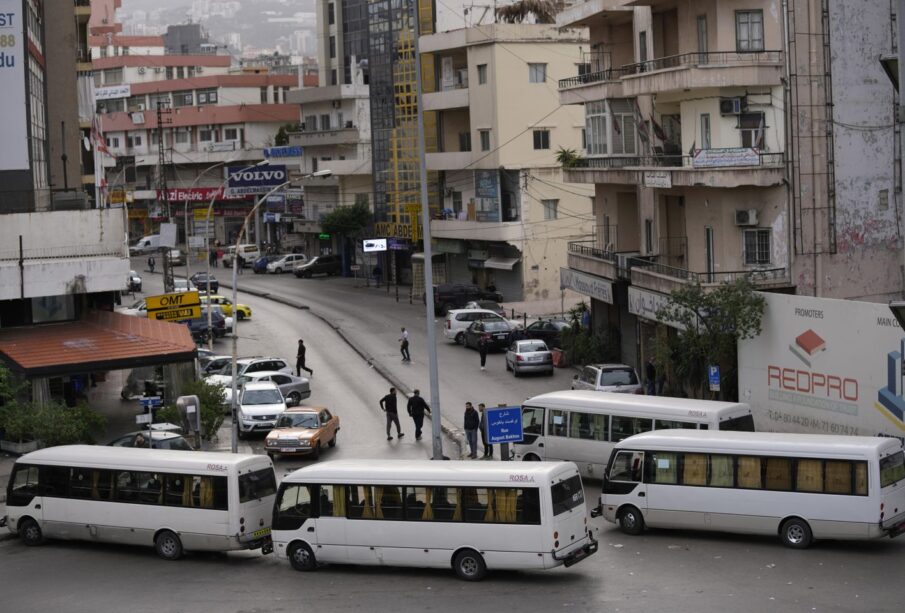Hezbollah, ally end Cabinet boycott in crisis-hit Lebanon
 Public transport buses block a road, during a general strike by public transport and labor unions to protest the country's deteriorating economic and financial conditions in Beirut, Lebanon, Thursday, Jan. 13, 2022. (AP Photo/Hussein Malla)
Public transport buses block a road, during a general strike by public transport and labor unions to protest the country's deteriorating economic and financial conditions in Beirut, Lebanon, Thursday, Jan. 13, 2022. (AP Photo/Hussein Malla)Lebanon’s militant Hezbollah group and its main Shiite ally said Saturday they are ending their boycott of Cabinet meetings after a three-month deadlock that has worsened the small nation’s unprecedented economic meltdown.
The two Shiite groups said in a joint statement they would attend Cabinet sessions to approve a new budget and measures for dealing with the two-year crisis, and to discuss a recovery plan. They said they would attend because of the accelerated economic deterioration in recent weeks.
The two groups had boycotted the Cabinet since October, demanding changes in the national probe of the devastating August 2020 explosion in Beirut’s port and effectively paralyzing the government.
Hezbollah had called for the judge in the port blast to be removed, accusing him of bias. Judge Tarek Bitar has meanwhile faced a slew of legal challenges and lawsuits calling for his removal, which forced him to suspend the probe at least four times. The probe is currently suspended.
Bitar had summoned and charged several senior officials on charges of intentional negligence that led to the explosion, which killed more than 200 people and injured thousands. The two Shiite groups vowed to continue their efforts to remove the judge investigating the port blast.
Prime Minister Najib Mikati welcomed the decision of two groups to end their Cabinet boycott. He said earlier this month the state budget should be ready for discussion within days.
A government-approved recovery plan is a prerequisite for resuming discussions with the International Monetary Fund. Lebanese officials had said a deal would be possible by the end of January, a timeline unlikely now after weeks of no government meetings. An IMF delegation is expected in Lebanon soon.
Lebanon’s economic crisis, which began unfolding in late 2019, is rooted in years of mismanagement and corruption by the same political class that has been in power for years. The crisis has driven more than half of the population into poverty, sent the national currency tumbling and inflation and unemployment soaring.
SOURCE: AP











